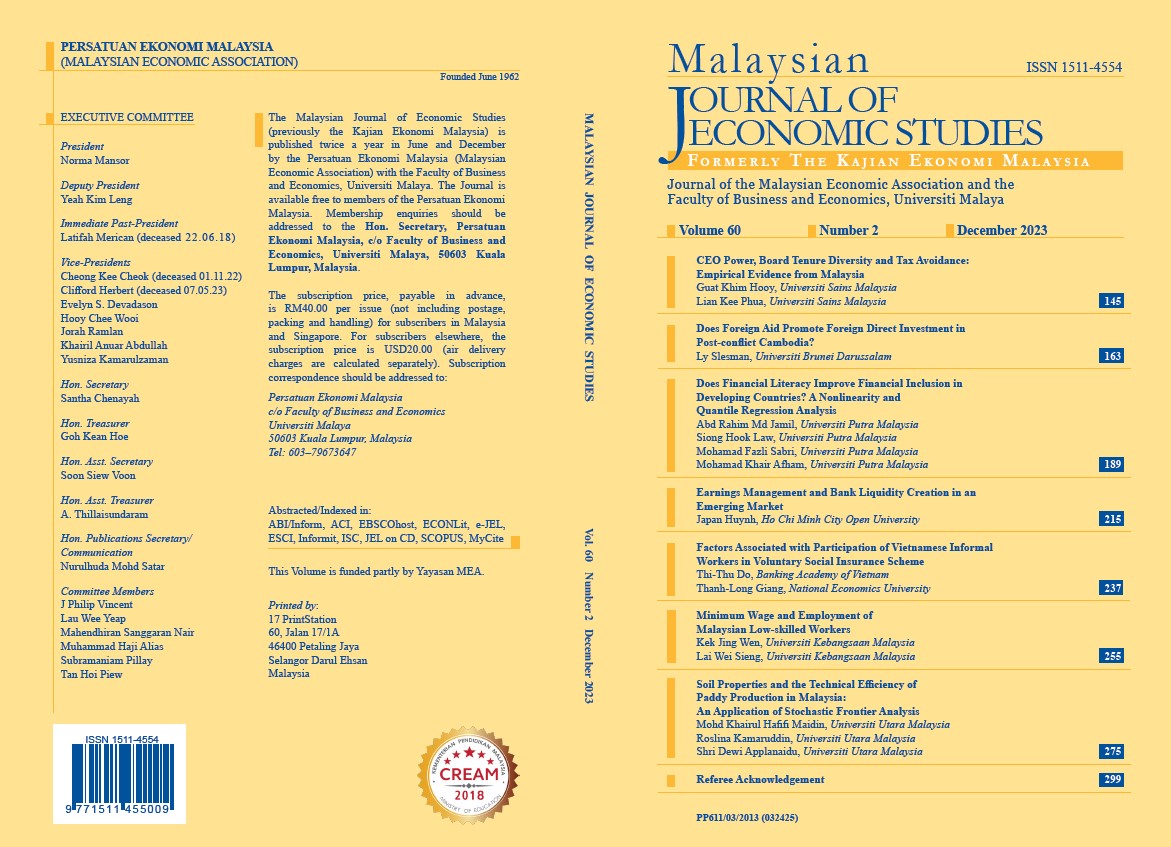Soil Properties and the Technical Efficiency of Paddy Production in Malaysia: An Application of Stochastic Frontier Analysis
DOI:
https://doi.org/10.22452/MJES.vol60no2.7Keywords:
Maximum likelihood estimation, paddy production, Cobb-Douglas, translog, soil propertiesAbstract
This study investigates the impact of soil properties on technical efficiency in paddy production, focusing on Malaysia’s two main paddy granaries: KADA and IADA BLS. These granaries play a significant role in Malaysia’s paddy production. The research employed three different models, with productivity as the dependent variable. In models 1 and 2, standard physical inputs were used as independent variables. Model 3, however, augmented the inputs with the addition of soil property variables. The empirical results revealed significant impacts from fertiliser, pesticide and land inputs, with the exception of land in model 1, where its coefficient was not statistically significant. Additionally, soil pH and the calcium+magnesium/potassium ratio emerged as crucial factors affecting paddy productivity. Importantly, incorporating soil property variables into the analysis resulted in a relatively lower technical inefficiency estimate. These insights are invaluable for policy formulation, highlighting key inputs that can optimise paddy production. The study’s findings regarding soil properties are particularly relevant for refining strategies in national paddy development programs, emphasising the importance of sustainable soil management. Looking ahead, the study advocates for comprehensive technical efficiency estimations that account for all forms of heterogeneity, including weather conditions, to ensure more accurate and insightful assessments.

